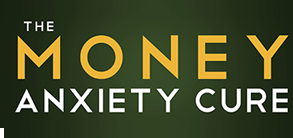The Original article from The New York Times, May 22, 2020
Dale Mackey closed her event space in Knoxville, Tenn., a week before the state issued its orders to end large gatherings. She did not think about the economic ramifications of shuttering her business, the Central Collective; she said it was the right thing to do to reduce the spread of the virus.
Work dried up for her husband, Shawn Poynter, a photographer, so to help make ends meet, Ms. Mackey began spending more time on a side business, making sweet and savory pies and selling them online. She and her husband are in their mid-30s and have some savings and no debt beyond mortgages on their home and the event space, so they were content hunkering down.
But as the weeks wore on, thoughts of financial anxiety began to emerge.
“It’s much more of a struggle for me about when we can reopen,” Ms. Mackey said, adding that the uncertainty began to weigh on her. “It’s different if I knew we were going to be opening in three months.”
In this financial crisis, many Americans are facing increased stress about money. But Ms. Mackey turned to a solution that few people try: She sought a financial therapist, a professional trained to counsel people about their money woes. Most have advanced degrees in psychology or clinical social work.
Ms. Mackey found Amanda Clayman, a financial therapist in Los Angeles who has a podcast on financial therapy within WNYC’s Death, Sex and Money franchise.
“When you bring up the topic of financial therapy, people are like, ‘That’s me, I want help,’ or their level of defensiveness is so intense,” said Ms. Clayman, who puts people on the proverbial couch for her podcast, “Financial Therapy With Amanda Clayman,” which was introduced this week.
The pandemic is an ideal time to lay bare people’s psychological struggles around money, she said, because the financial fallout from closing the U.S. economy for months is far from certain. Add to that the guesswork around how lockdown orders may have changed consumer spending habits.
“This pandemic is like a black light,” Ms. Clayman said. “It’s suddenly revealing all the things that were present before but unseen.”
Interest in financial therapy rose after the 2008 recession. Therapists tried to help people parse the stress they were feeling as they navigated a financial crisis that destroyed 8.7 million jobs.
A few years into the recovery, Kansas State University, which runs a leading undergraduate program for financial planning, started a financial therapy clinic to study people’s emotions around money. With electrodes attached to their bodies, participants had their responses measured during a series of financial discussions. (When I participated in 2012, the results showed that I was far more anxious talking even generally about my financial situations than I thought.)
Despite the interest, the field of financial therapy remains nascent. Besides Kansas State, Creighton University in Omaha has a financial therapy program. But none of the major financial services firms have anything approaching full-scale financial therapy for the majority of their customers. The nature of such therapy is beyond the training of most financial advisers. It’s also an area fraught with risk for an industry that is paid on the advice it gives for the assets it manages.
But now is the time to engage, because Americans are going to emerge from the coronavirus recession emotionally scarred in a way similar to the military veterans who suffer from post-traumatic stress disorder, said Brad Klontz, a financial psychologist in Boulder, Colo., and a pioneer in the field of financial therapy.
“We’re experiencing a mass trauma across the United States, if not the world,” Dr. Klontz said. “Our illusion that we’re safe has been shattered. It’s like a psychological earthquake.”
He is optimistic, though, that people can use this experience to think more deeply about their financial values. “It’s been a forced wake-up call for everyone in the world,” he said. “We have just been offered a crisis to give us an opportunity to think about money.”
At home in Knoxville, Ms. Mackey said she was coming to terms with the loss of security she had gained in the past two years. “I was in my groove, and I was pretty content,” she said. “I was working a reasonable amount, earning a reasonable amount, able to take some time off of work here and there.”
Now, she said, she is worried about finances as Tennessee gradually reopens. By next month, when event spaces are allowed to be open at 50 percent capacity, her venue could be up and running, a prospect that would be good financially for her, though she’s wrestling with it because of safety issues.
“It’s going to be dicey if you can be open, but we don’t think it’s safe to do so,” Ms. Mackey said. “That’s when it gets complicated. You have all these contracts to fulfill.”
She found her financial therapy session helpful because it allowed her and her husband to talk openly about their financial anxieties. “I didn’t realize I have an emotional relationship to money until we started talking and I realized I’m scared or uncomfortable about it,” she said.
As in most therapy, there was no clear-cut resolution, but the exercise itself was beneficial. “It’s the uncertainty piece that is much harder for me,” Ms. Mackey said. “It’s harder to plan when you can’t say, ‘OK, I know this business will be closed for three months or one year.’”
Another guest on the podcast, who requested anonymity for privacy concerns, said the economic crisis had shaken his faith in his ability to provide for his family. It also called into question seemingly rational decisions he had made when he quit his job and started a marketing consultancy in a different city. The business was doing well until the economy shut down.
“The control of money for me is really foundational for who I am,” the guest said in an interview afterward. “Now, I’m not in control, and I cannot be in control. I had to swallow it a few times before I could say that out loud.” He said he realized through the therapy session that he could be emotionally distant when talking about money. That realization has lifted some of the burden around earning money.
This crisis is an opportunity for people to allow themselves to be angry that forces beyond their control have disrupted plans they thought they had made wisely, Ms. Clayman said.
“Sometimes, we just need to be angry and settle down and say, ‘This is why I made these choices,’” she said. “It’s our opportunity to come back to some of the emotional or psychological baggage we were carrying and re-choose some of the choices we make.”
The concern that financial therapists have now is that people will get stuck in what is known as catastrophic thinking. “Listen for those thoughts that come up in our head that say things like it’s pointless to invest your heart and soul in something because it can just be taken away,” Ms. Clayman said. “Or the thought that says, ‘This is all on my shoulders, and I can’t depend on anybody.’”
She said people should allow themselves to get angry but then begin to address the underlying feelings they have with money that anger often masks.
Planning for the worst-case scenario allows most people to understand that they will survive, Dr. Klontz said. Those who have been financially traumatized, particularly children and young adults whose education has been disrupted, could get stuck in a fear-based mentality, akin to what many in the Great Depression generation carried with them.
Now is when the stories we tell ourselves become critical. “Money is a concrete thing that we use for practical purposes, but we cannot separate the concrete part from the meaning point,” Ms. Clayman said. “That’s not a choice we can make. We can avoid it, but that doesn’t make it go away.”
After all, she said, “we’re human beings, and our brains are set up to understand the world in stories.”
Which ones we remember from this crisis will be important in determining what our financial lives look like going forward.
***
Paul Sullivan is the Wealth Matters columnist. He is also the author of The Thin Green Line: The Money Secrets of the Super Wealthy and Clutch: Why Some People Excel Under Pressure and Others Don’t. @sullivanpaul

